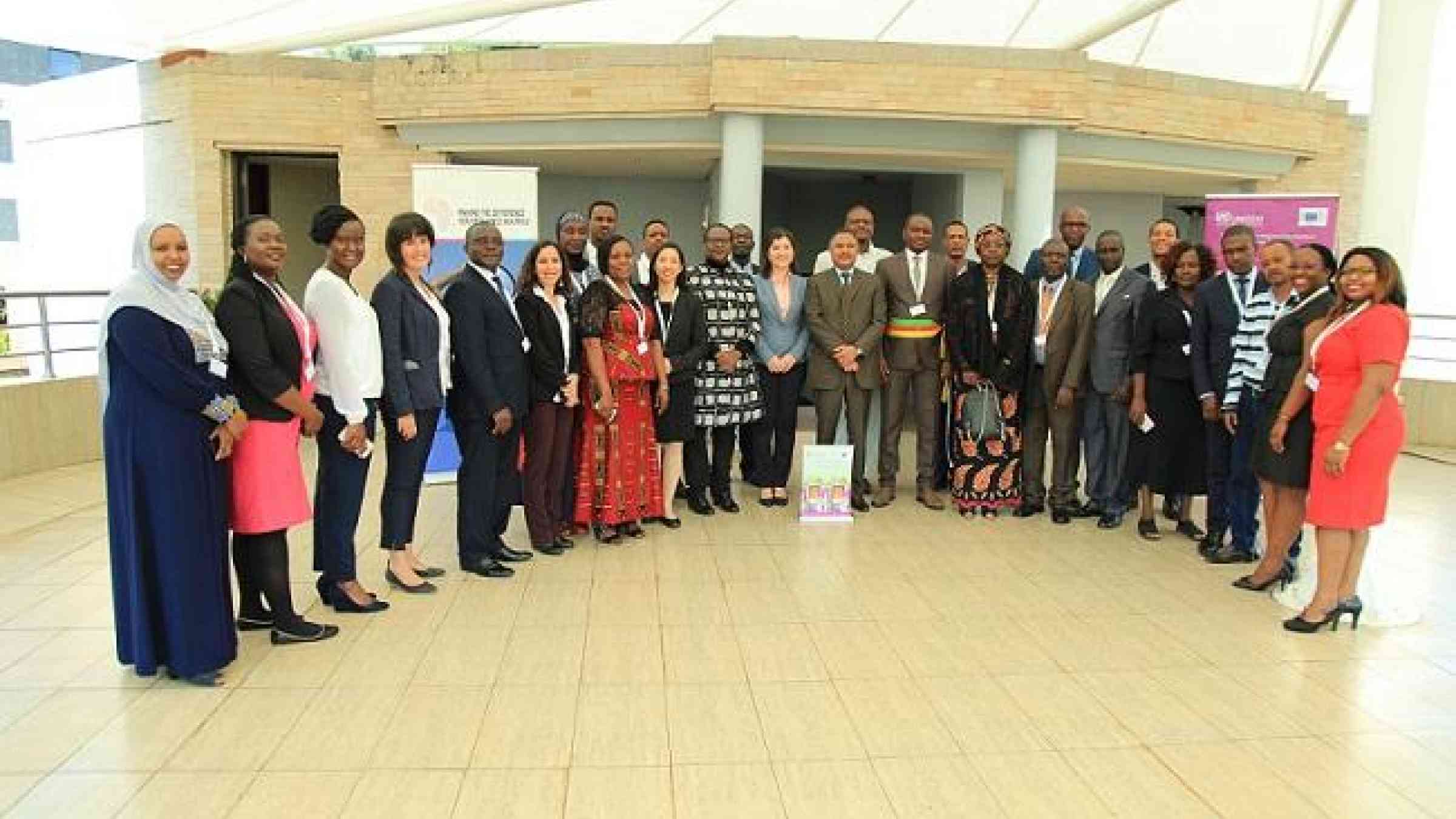Africa city leaders promote inclusive resilience

19 September 2018, Nairobi – City leaders in Africa have shared some of the successes of inclusive disaster risk reduction strategies, particularly focusing on community engagement and action at the local level.
In Yaoundé VI, as explained the Mayor, Yoki Onana Jacques, “The involvement of multi-stakeholders has yielded incredible outcomes that have promoted synergy between the mayor’s office and stakeholders.
“The local platform for DRR provides a stage for building strategic cooperation through joint planning of activities, the result being increased efficiency in cost and impact in implementing the Sendai Framework,” said Mr. Jacques, referring to the global roadmap for reducing disaster loss.
The comments were made at a recent workshop held in the Kenyan capital, Nairobi, to mark progress in a global initiative designed to support cities to develop disaster risk reduction strategies, called: “Making cities sustainable and resilient: implementing the Sendai Framework for Disaster Risk Reduction 2015-2030 at the local level”.
This project is currently supporting five pilot cities in Africa to develop and implement disaster risk reduction (DRR) action plans. These include Dire Dawa (Ethiopia), Kampala (Uganda), Kisumu (Kenya), Praia (Cape Verde) and Yaoundé (Cameroon).
Doris Ombara, City Manager of Kisumu City in Kenya, explains, “As local governments, we are strategically positioned to successfully integrate disaster risk information into urban development planning processes and daily city operations, as we provide leadership for the well-being of our constituents.
“Being the closest institutional level to citizens and communities, our participation and leadership are central to building resilience,” said Ms Ombara.
Local governments play a crucial role in building urban resilience. To reap the benefits of urban risk reduction, governments must invest in developing effective policies and tools in helping cities to get ready to meet future risks and protect developmental gains. The resilience of cities inspires opportunities for attracting capital investments, creating fresh business possibilities, delivering greater social equality and providing more balanced ecosystems.
Data and information management is critical to inform decisions on DRR interventions. A glimpse at international databases shows that data on economic losses from disasters available represents 36 per cent of disasters recorded from 1995 to 2015 globally. Records are particularly sparce from Africa, where losses reported account for about 12.6 per cent of the events.
While delivering his opening remarks, UNISDR’s Chief of the Regional Office for Africa, Amjad Abbashar remarked that :“Existing gaps in our risk knowledge are an international concern. We must establish robust and well-maintained national disaster loss databases to improve record-keeping and accountability. To design or update our national and local disaster risk reduction strategies in an inclusive and gender-sensitive manner, the availability of disaggregated data and their correct use and interpretation is fundamental.”
The “Making Cities Sustainable and Resilient” initiative is funded by European Commission’s International Cooperation and Development (DEVCO).